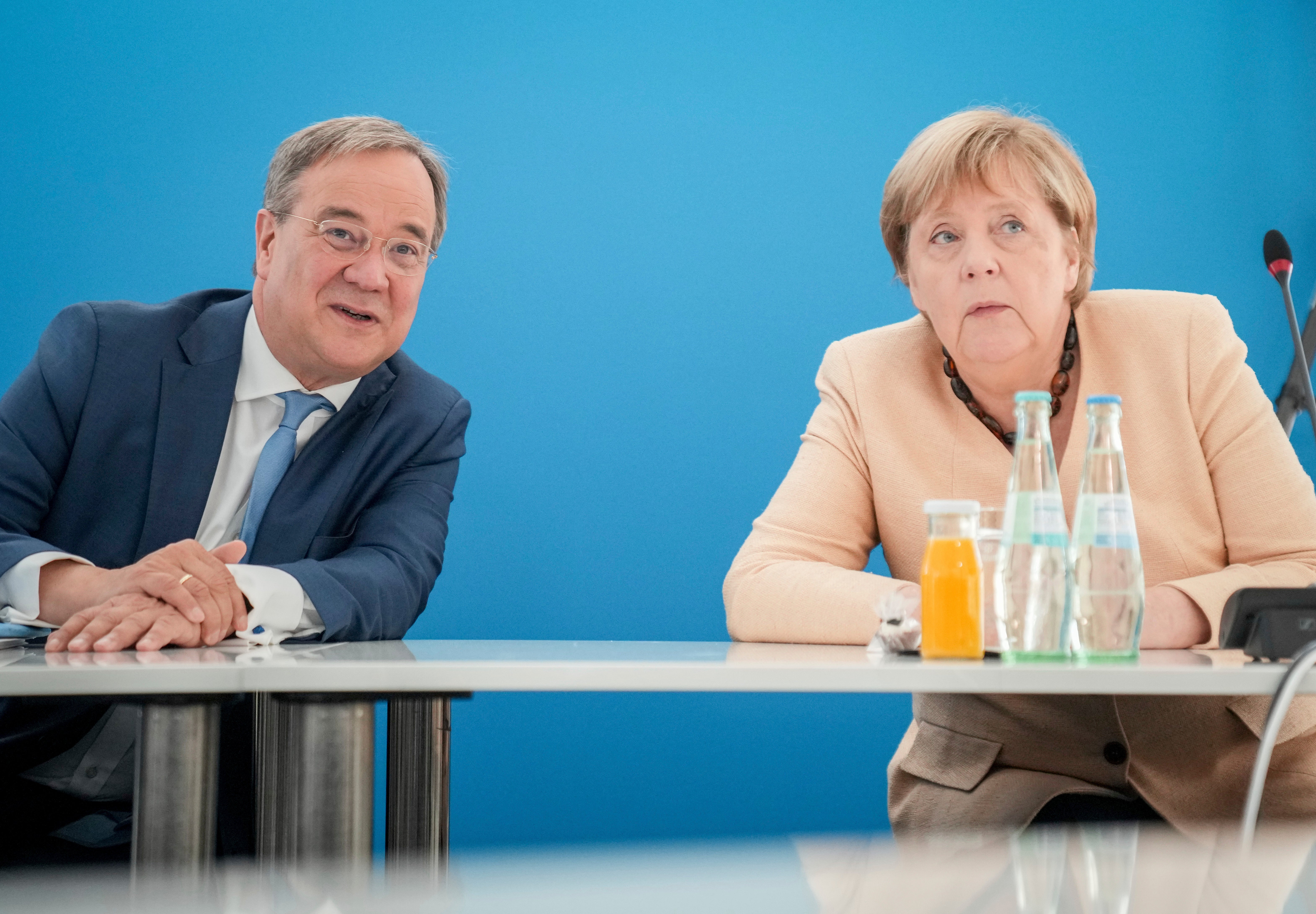Merkel's party ahead in local votes in northern German state
The center-right candidate hoping to succeed Angela Merkel as Germany's chancellor is celebrating his party’s narrow victory in local elections in a northern German state

The center-right candidate hoping to succeed German Chancellor Angela Merkel is celebrating his party's narrow victory in local elections in a northern German state, two weeks before a national election in which he is struggling in the polls.
Sunday's election for local councils in Lower Saxony state, in Germany's northwest, offered Merkel's Christian Democratic Union party some cheer, even though such votes tend to have a very limited significance for the national political landscape. Nationwide polls currently show the CDU slightly behind the center-left Social Democrats.
“The aim of the Social Democrats to become the strongest party in councils in Lower Saxony failed,” the CDU candidate for chancellor, Armin Laschet, told reporters Monday in Berlin Deputy party leader Silvia Breher said the result is “an absolute motivation boost for our election campaigners.”
The CDU has been the strongest party in local council elections in Lower Saxony for about 40 years, although the state government has often been led by the Social Democrats, and is at present. In Sunday's election, the CDU took 31.7% of the vote, down from 34.3% five years ago.
The Social Democrats finished second with 30%, down slightly from 31.2% in 2016. The environmentalist Greens increased their share of the vote to 15.9% from 10.9%.
The three candidates seeking to become Germany's next leader — Laschet, Social Democrat Olaf Scholz and Green contender Annalena Baerbock — faced off Sunday in the second of three televised debates. Merkel announced in 2018 that she wouldn’t seek a fifth term.
A pair of polls after the debate suggested that it likely didn't bring any decisive turnaround in a race in which Scholz, the experienced vice chancellor and finance minister in Merkel's government, has bolstered his relative popularity amid doubts about his rivals. Both showed respondents scoring Scholz as the debate's best performer.
Laschet, asked whether he is nervous that time is running out for him, replied: “Nothing is running out at all.”
Laschet on Monday spoke at a presentation of priorities for what he hopes will be a CDU-led government, which included reducing bureaucratic hurdles for infrastructure projects, helping families buy property and raising to six months the minimum sentence for assaults on emergency responders.
The final political TV debate will be held Sunday, a week before the Sept. 26 parliamentary election.
___
Follow AP’s coverage of Germany’s election at https://apnews.com/hub/germany-election
Bookmark popover
Removed from bookmarks